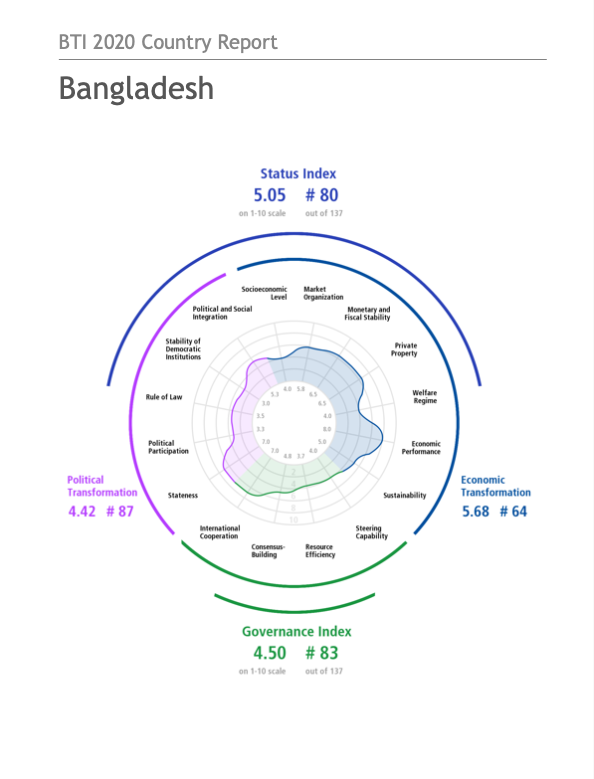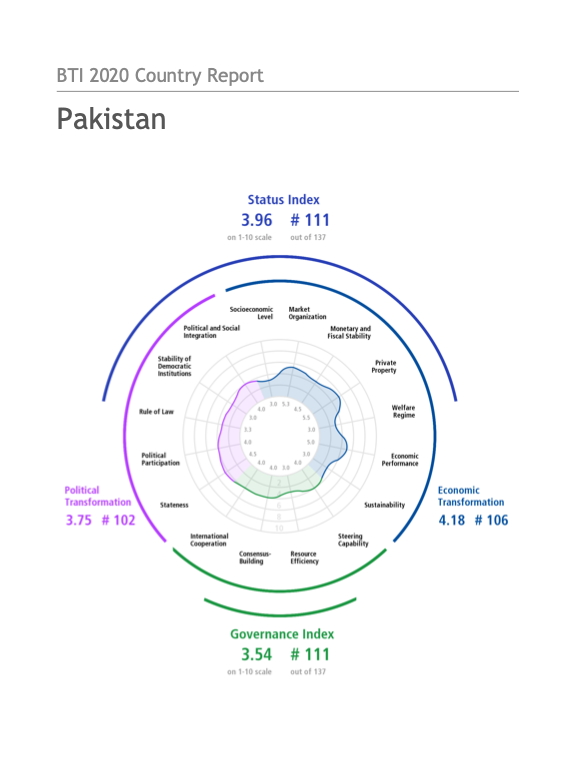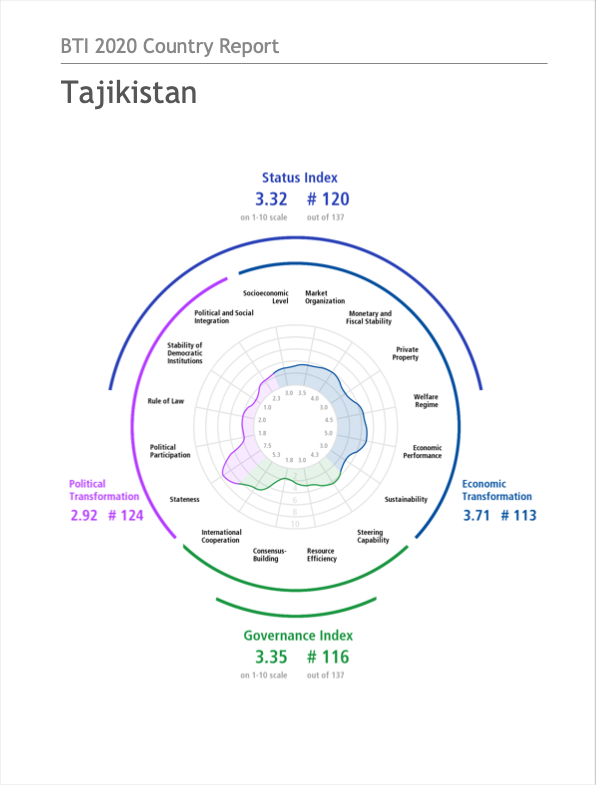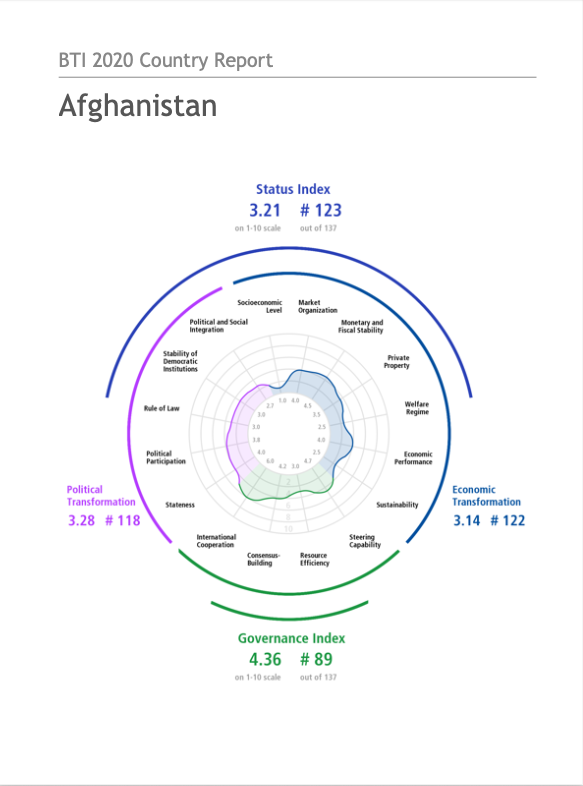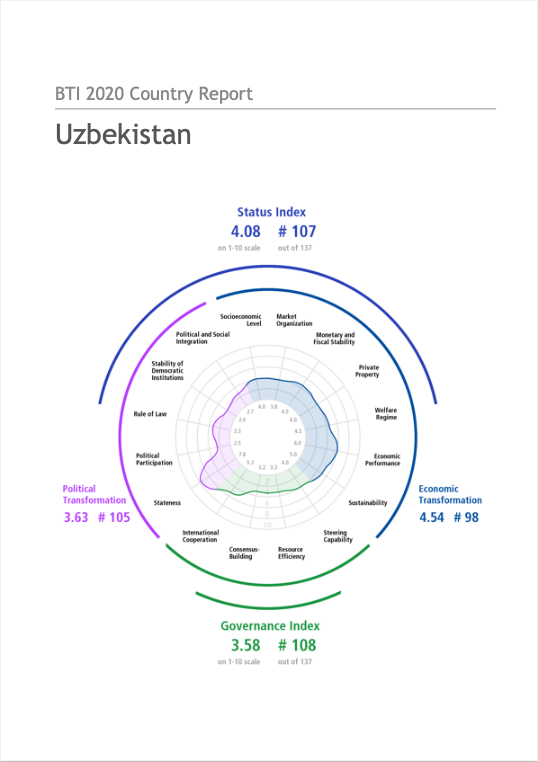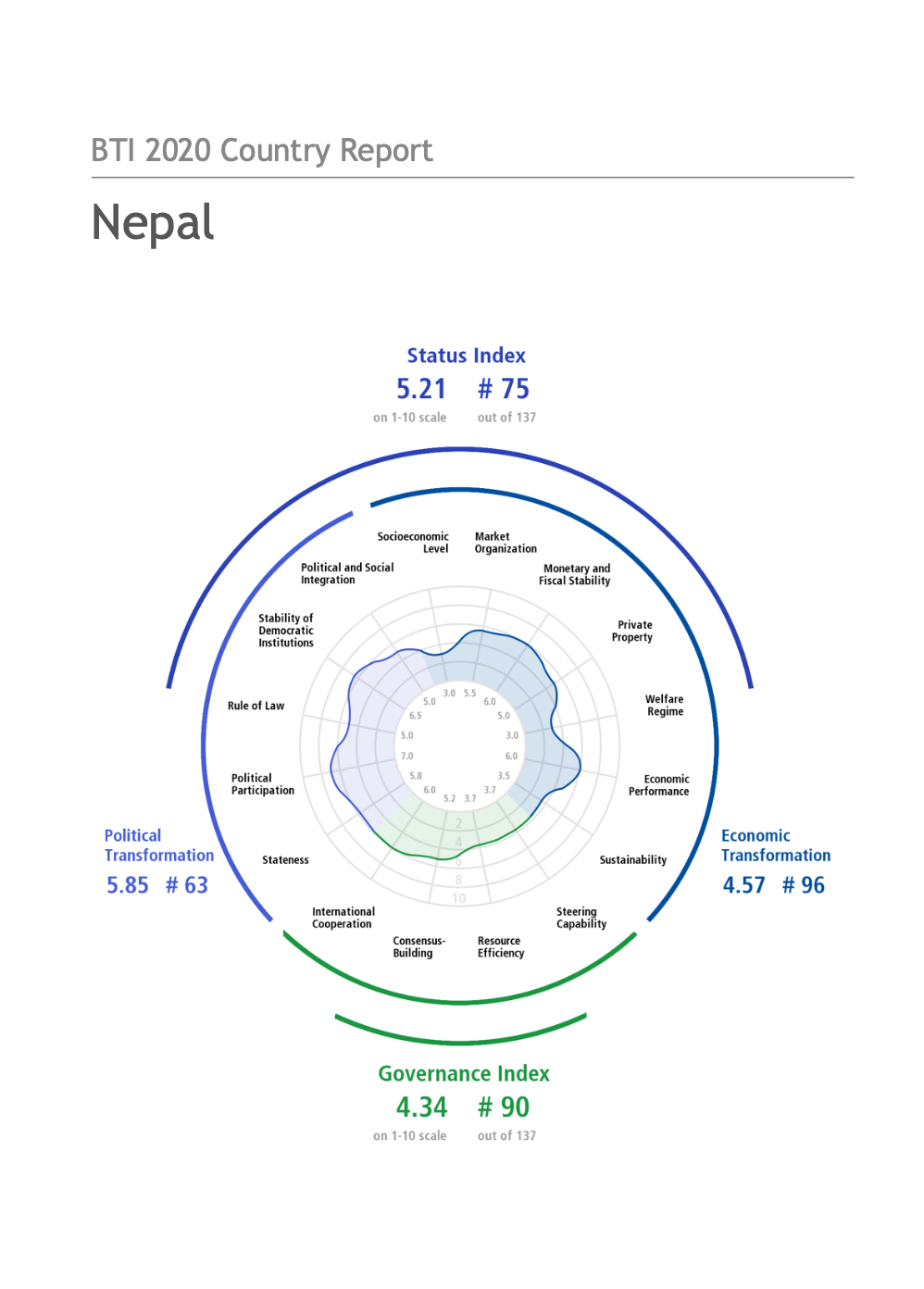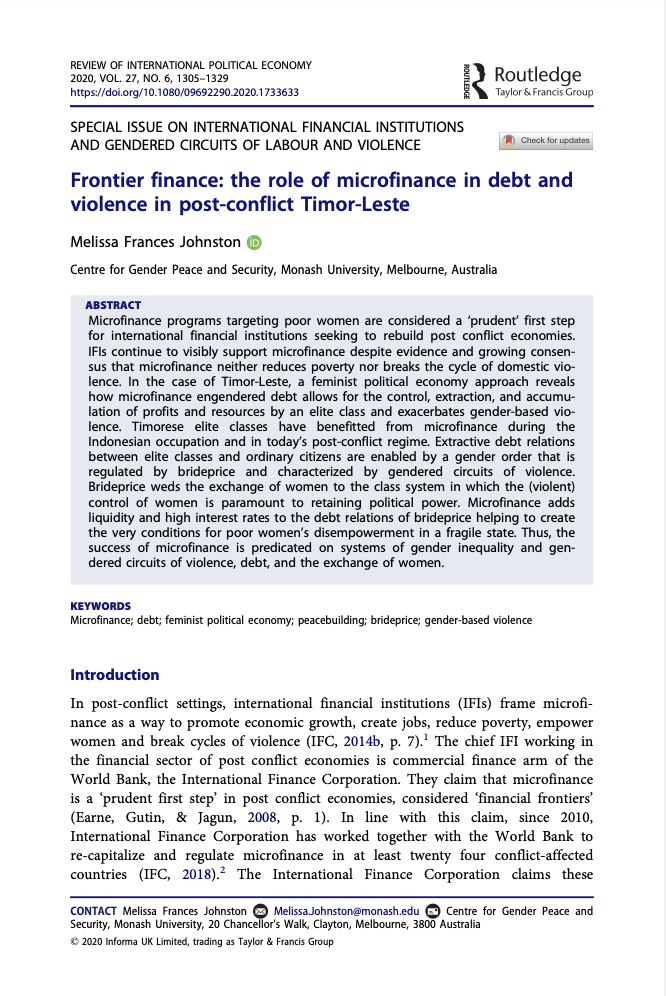BTI 2020 Country Report Bangladesh
ABSTRACTED FROM EXECUTIVE SUMMARY: On December 30, 2018, Bangladesh held national elections. The election was not deemed fair by observers, and from the point of filing nomination papers to election campaigning, the opposition faced severe political obstacles. Their cadres were arrested, and rallies and campaign were attacked by the ruling party’s supporters. The government of Prime Minister Sheikh Hasina Wazed, which has been in power since 2009, employed the police as a political tool during the period under review.

